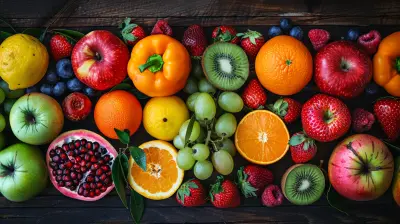How to Overcome Gluten-Free Fatigue and Stay Energized
29 April 2025
Going gluten-free can feel like a game-changer for your health—until you hit that dreaded wall of fatigue. If you've recently adopted a gluten-free lifestyle and find yourself feeling more sluggish than expected, you're not alone. Many people experience gluten-free fatigue, and it can be frustrating when you're trying to improve your well-being but end up feeling drained instead.
So, what gives? And more importantly, how can you reclaim your energy and feel your best on a gluten-free diet? Let's dive into the reasons behind gluten-free fatigue and the actionable steps you can take to stay energized.
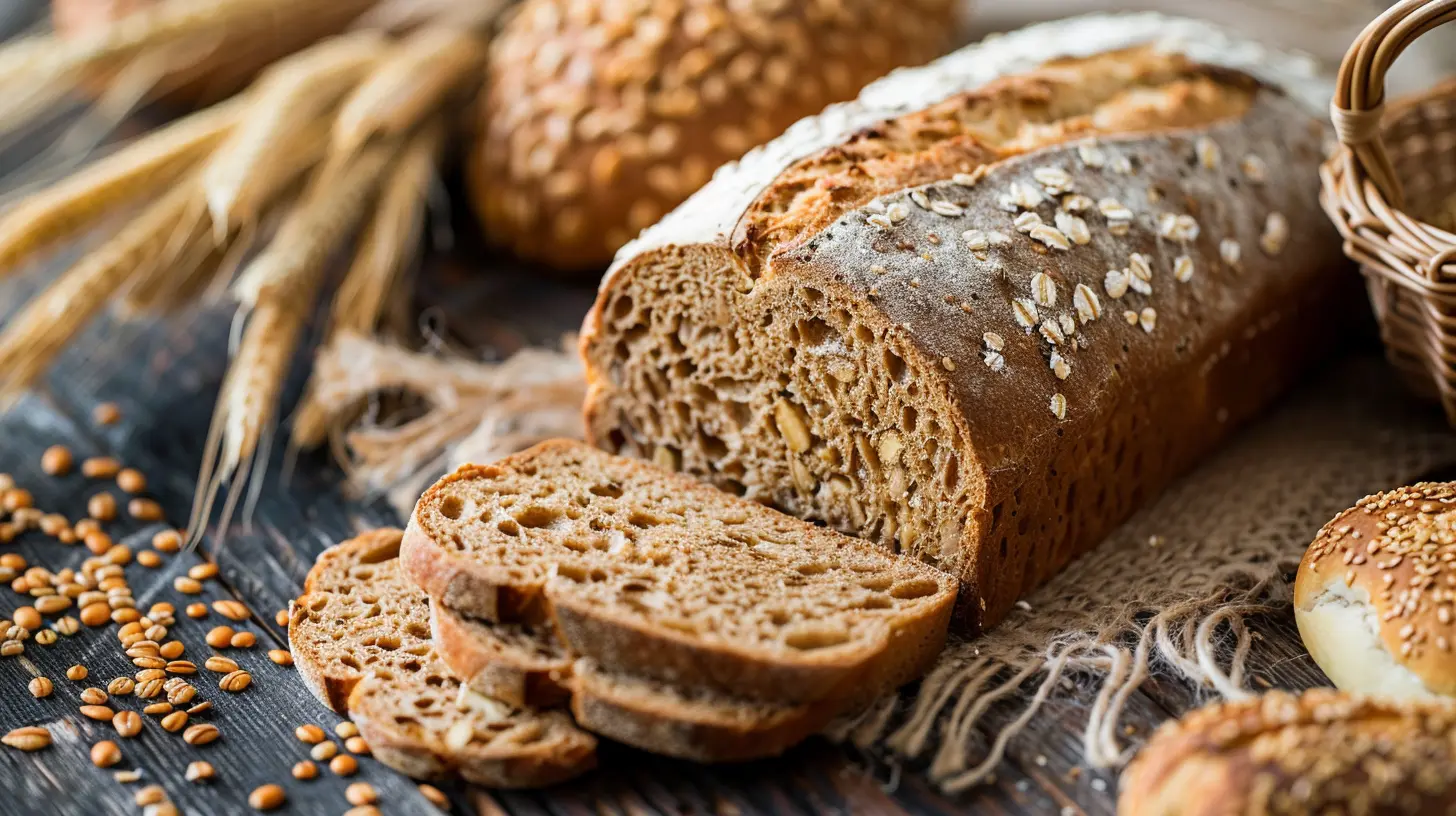
Why Does Gluten-Free Fatigue Happen?
Switching to a gluten-free diet should, in theory, make you feel healthier—especially if you've been struggling with gluten sensitivity, celiac disease, or digestive discomfort. But if you're feeling tired, here are some of the possible culprits:1. Nutrient Deficiencies
When you cut out gluten, you may unknowingly miss out on important nutrients. Many gluten-containing foods, like whole wheat and fortified bread, are rich in essential vitamins and minerals. Without proper replacements, deficiencies can sneak up on you, leading to fatigue.Common nutrient deficiencies on a gluten-free diet include:
- Iron – Low iron levels can result in anemia, making you feel sluggish and weak.
- B Vitamins (especially B12) – Critical for energy production, a deficiency in these vitamins can leave you feeling exhausted.
- Magnesium – Plays a role in muscle function and relaxation. Low levels contribute to fatigue and brain fog.
2. Not Enough Carbs
Carbs are your body's primary source of energy. If you've cut out gluten and haven’t found proper replacements, your body might not be getting enough fuel. Many people mistakenly believe that "gluten-free" means "low-carb," but it doesn’t have to be that way!3. Processed Gluten-Free Foods
Just because something is labeled "gluten-free" doesn’t mean it’s healthy. Many gluten-free packaged foods are loaded with sugar, unhealthy fats, and additives, leading to blood sugar crashes and afternoon slumps.4. Gut Health Imbalance
Gluten may have been irritating your gut, but if your digestive system is still struggling to absorb nutrients, fatigue can linger. A damaged gut lining (common in those with celiac disease) takes time to heal, and during that process, your body may struggle to fully absorb the nutrients it needs.5. Adjusting to Dietary Changes
Your body needs time to adapt to a new way of eating. If you’ve recently switched to a gluten-free diet, your digestive enzymes and gut bacteria may still be adjusting, leading to temporary fatigue.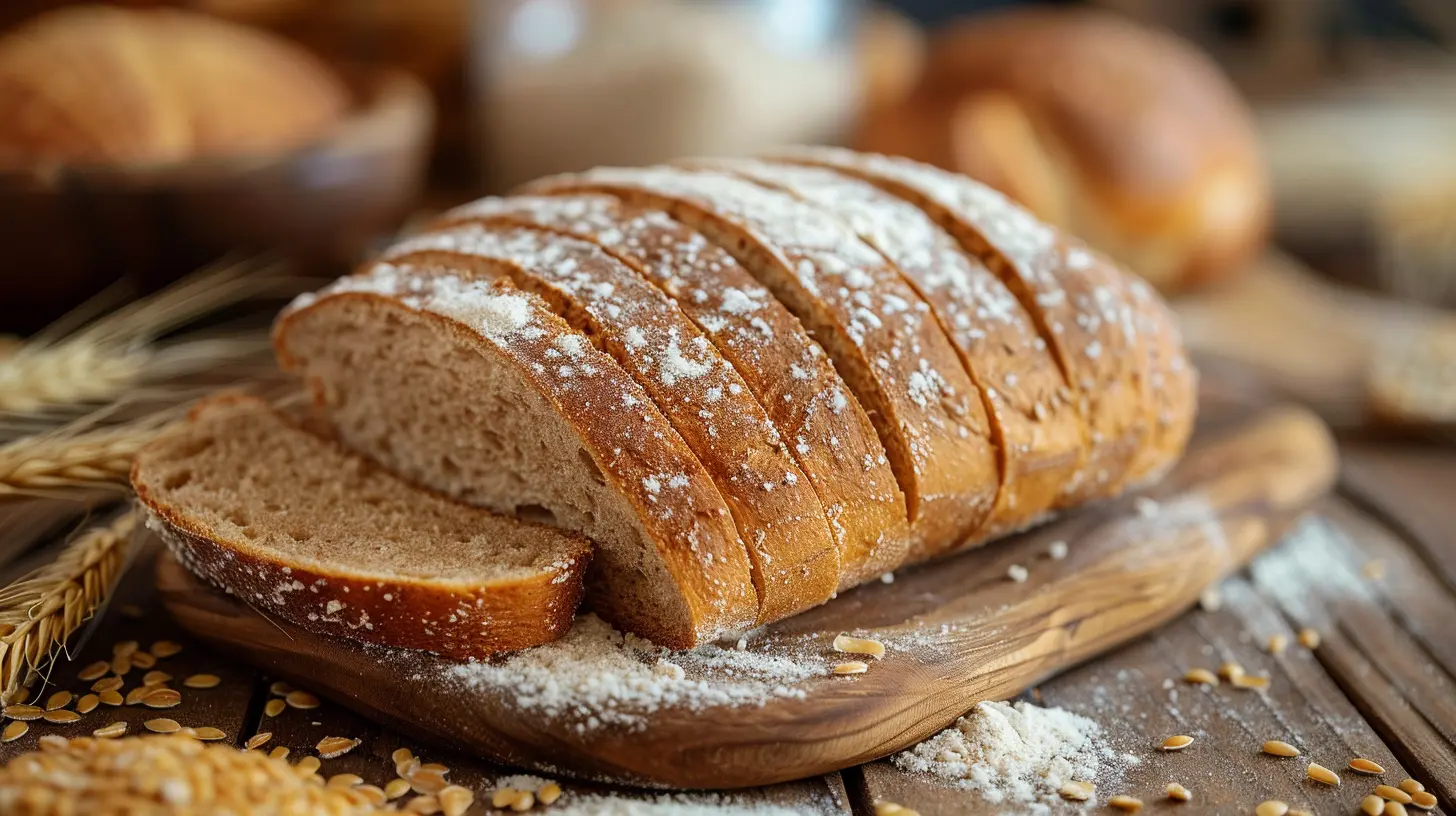
How to Boost Your Energy on a Gluten-Free Diet
Now that we’ve identified some common causes of gluten-free fatigue, let’s talk solutions! Here’s how you can beat the exhaustion and power through your day with energy.1. Prioritize Nutrient-Dense Foods
Since gluten-free diets can sometimes lack key nutrients, it’s essential to load up on highly nutritious foods.Best energy-boosting gluten-free foods:
- Leafy greens (spinach, kale) – Packed with iron and minerals for sustained energy.
- Quinoa – A great gluten-free grain with protein, fiber, and iron.
- Eggs – Rich in B vitamins and protein to keep you feeling full and energetic.
- Sweet potatoes – A complex carb that provides long-lasting energy.
- Nuts and seeds (almonds, chia, flaxseeds) – Full of magnesium, omega-3s, and healthy fats for brain power.
2. Don’t Fear Carbs—Choose the Right Ones
Carbohydrates are essential for energy. Instead of avoiding them altogether, opt for healthy, naturally gluten-free sources.Gluten-free carb sources to include:
- Brown rice
- Quinoa
- Buckwheat
- Oats (certified gluten-free)
- Lentils and beans
- Bananas
3. Eat Whole, Unprocessed Foods
Processed gluten-free foods can be sneaky energy-zappers. They often lack fiber and nutrients and cause sugar spikes followed by crashes. Instead, focus on whole foods that keep your blood sugar stable and energy levels high.Swap store-bought gluten-free cookies for fresh fruit. Replace gluten-free bread with nutrient-rich alternatives like sweet potatoes or homemade almond flour bread. Keeping it real (literally) does wonders for your energy!
4. Stay Hydrated
Dehydration can make you feel sluggish, dizzy, and foggy. Since many gluten-free foods are lower in fiber, some people also experience constipation, which can make you feel lethargic.Hydration tips:
- Aim for at least 8-10 glasses of water daily.
- Add electrolytes to your water if you feel particularly drained.
- Drink herbal teas like ginger or peppermint to support digestion.
5. Include High-Quality Protein in Every Meal
Protein helps stabilize blood sugar levels, keeping energy dips at bay. Make sure you're getting enough quality protein throughout the day.Great gluten-free protein sources:
- Grass-fed beef
- Organic chicken or turkey
- Wild-caught fish
- Eggs
- Legumes and lentils
- Tofu and tempeh
6. Support Your Gut Health
Your gut plays a huge role in absorbing nutrients and keeping energy levels stable. A poorly functioning gut can lead to sluggishness—even if you’re eating well!Gut-friendly tips:
- Take a probiotic to restore healthy bacteria.
- Eat fermented foods like kimchi, sauerkraut, and yogurt.
- Manage stress, since gut health is closely tied to your mood and energy levels.
7. Get Enough Sleep and Manage Stress
It’s easy to blame fatigue on food, but lifestyle factors also play a big role. If you’re not sleeping enough or constantly stressed, your body will feel the effects.Improve your sleep and stress levels by:
- Aiming for 7-9 hours of quality sleep every night.
- Reducing screen time before bed to improve sleep quality.
- Practicing stress-management techniques like meditation, deep breathing, or light exercise.
8. Listen to Your Body
Everyone’s body is different, and what works for one person may not work for another. Keep a food journal to track how you feel after eating different foods. If a gluten-free food is making you feel sluggish, it might not be the best choice for you.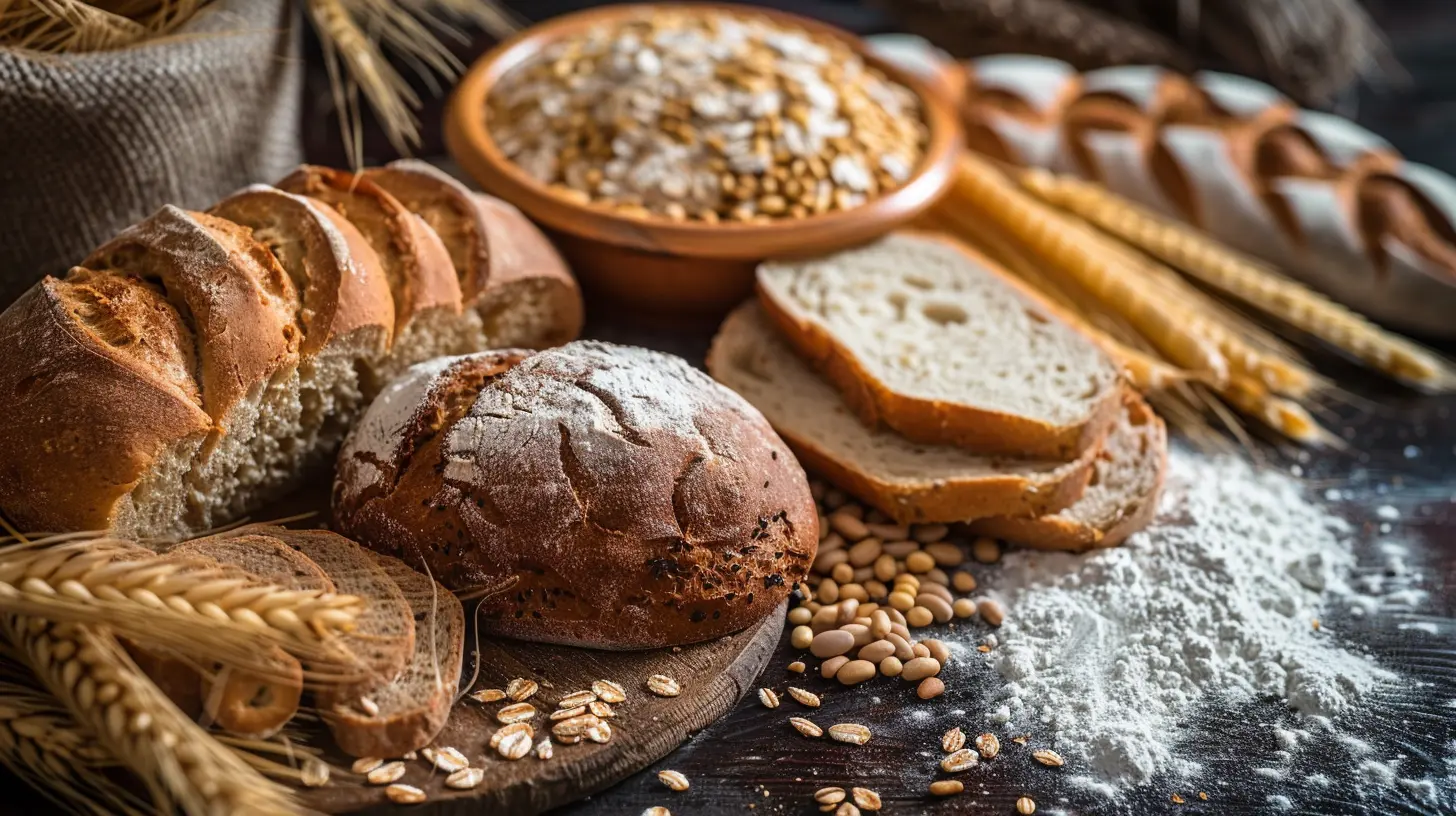
When to See a Doctor
If you've tried making dietary and lifestyle adjustments but still feel exhausted, it might be time to consult a healthcare professional. Persistent fatigue that doesn’t improve with proper nutrition and sleep could indicate an underlying health issue, such as:- Anemia or iron deficiency
- Thyroid imbalances
- Food sensitivities beyond gluten
- Underlying digestive disorders like IBS or SIBO
It’s always worth checking in with your doctor if something feels off. Your energy levels are a direct reflection of your health, and you deserve to feel vibrant!
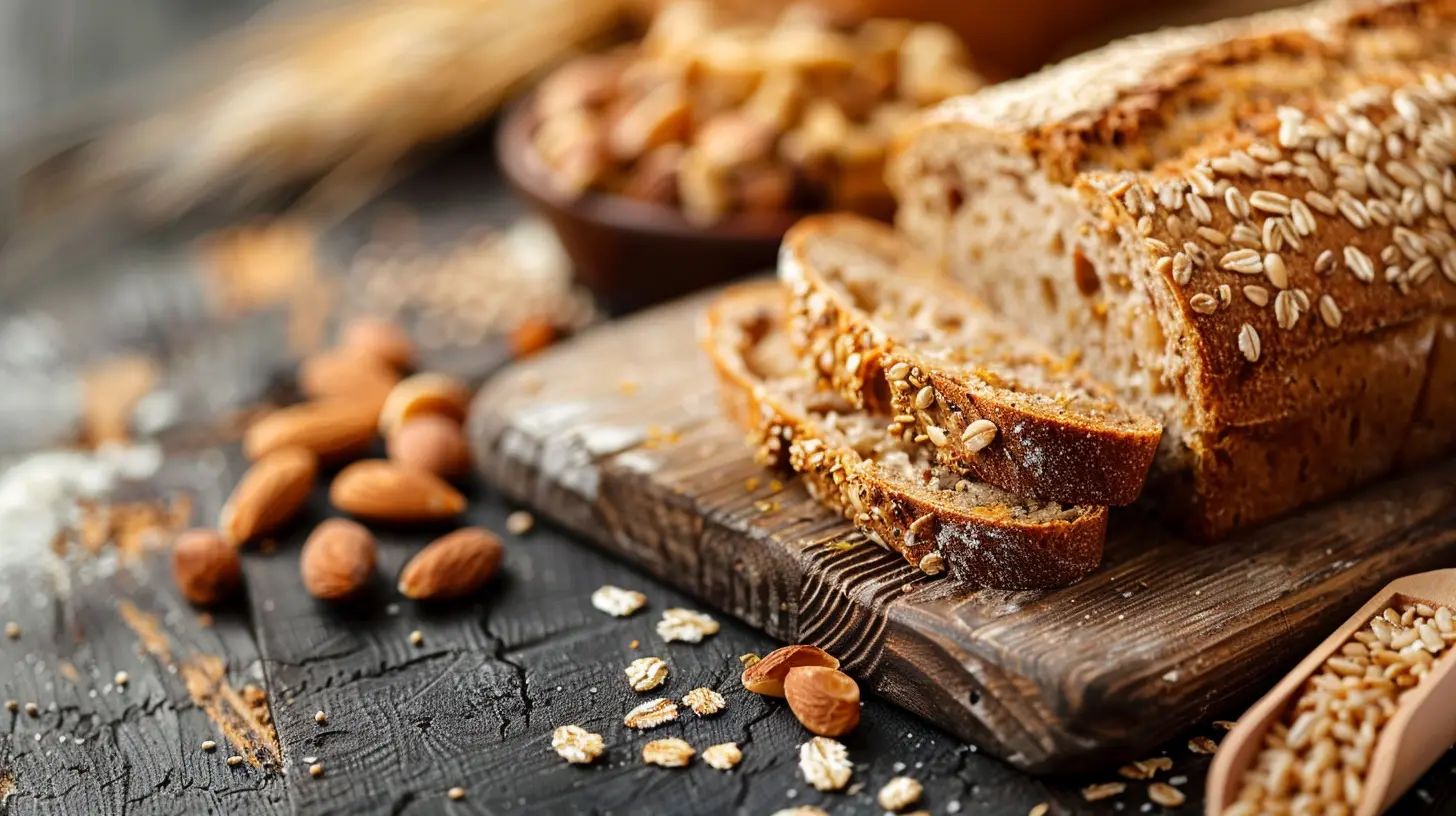
Final Thoughts
Going gluten-free shouldn’t mean constantly feeling drained. If you’re struggling with gluten-free fatigue, focus on nutrient-dense foods, balanced meals, proper hydration, and gut health to keep your energy levels high. Small changes can make a big difference, and with a little trial and error, you’ll find what works best for your body.Remember, this journey is about feeling better—so don’t be too hard on yourself. Listen to your body, fuel it well, and give yourself the grace to adjust. Before you know it, you’ll be thriving on your gluten-free diet, feeling more energized than ever!
all images in this post were generated using AI tools
Category:
Gluten FreeAuthor:

Madeline Howard
Discussion
rate this article
5 comments
Finn Meyers
Navigating a gluten-free lifestyle can be exhausting, but remember you're not alone. Embrace small changes and prioritize self-care—your vitality is worth the effort. Be gentle with yourself on this journey.
May 10, 2025 at 3:55 AM

Madeline Howard
Thank you for your encouraging words! It's crucial to prioritize self-care and take it one step at a time. We’re all in this together!
Sonya Rios
Great article! Your tips on overcoming gluten-free fatigue are so helpful. Here’s to staying energized and thriving on our journeys!
May 6, 2025 at 2:58 PM

Madeline Howard
Thank you so much! I'm glad you found the tips helpful. Here’s to thriving on our gluten-free journeys together!
Indigo McCaffrey
Great article! It's so important to recognize gluten-free fatigue and find ways to stay energized. Your tips are practical and inspiring. Remember, taking care of yourself is a journey—keep up the fantastic work!
May 3, 2025 at 4:56 AM

Madeline Howard
Thank you so much for your kind words! I’m glad you found the tips helpful—self-care is indeed a journey!
Kane Carter
Stay mindful, choose variety!
April 29, 2025 at 2:45 PM

Madeline Howard
Thank you! That's a great reminder to keep our meals exciting and diverse for better energy and health.
Monica O'Neal
Great tips! Staying energized on a gluten-free diet is essential. I love the idea of incorporating diverse foods for better nutrition!
April 29, 2025 at 4:56 AM

Madeline Howard
Thank you! I'm glad you found the tips helpful. Diversifying your food choices is key to maintaining energy and nutrition on a gluten-free diet!
